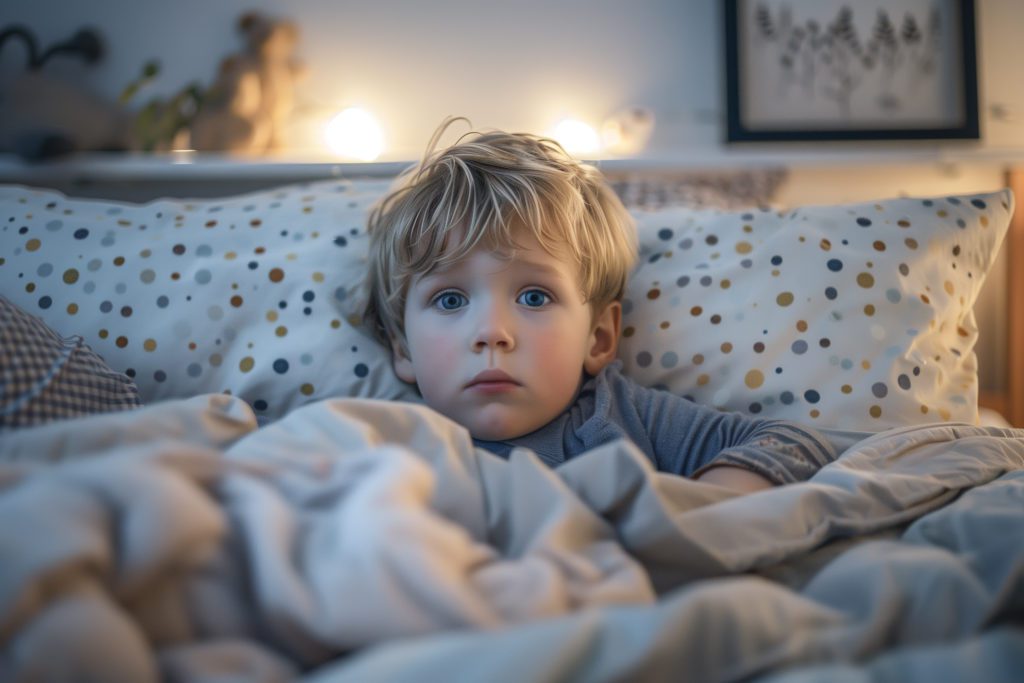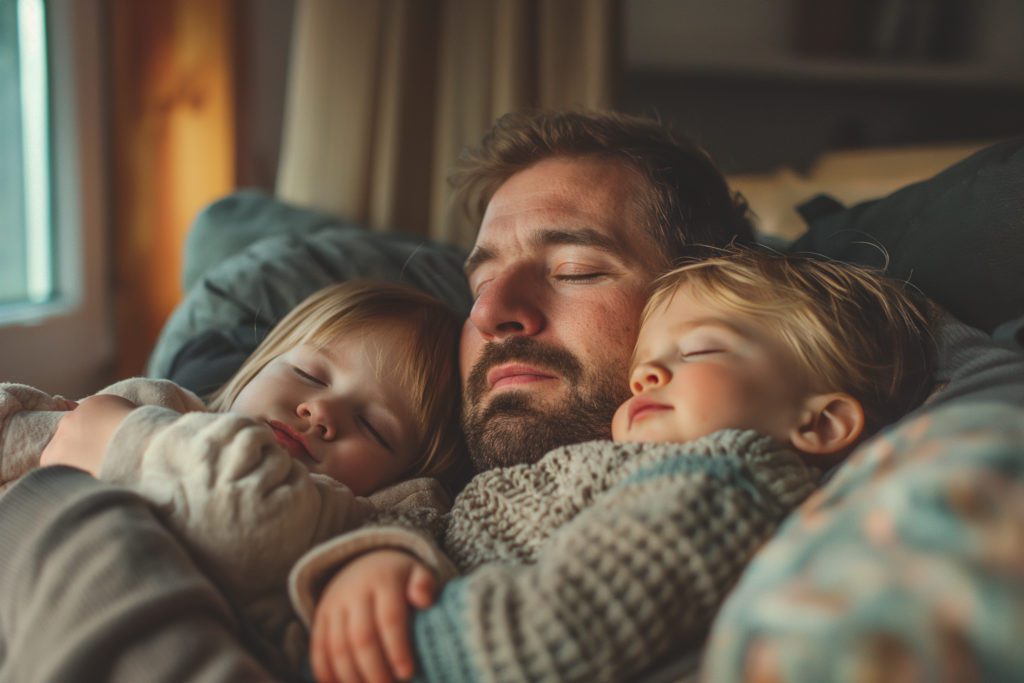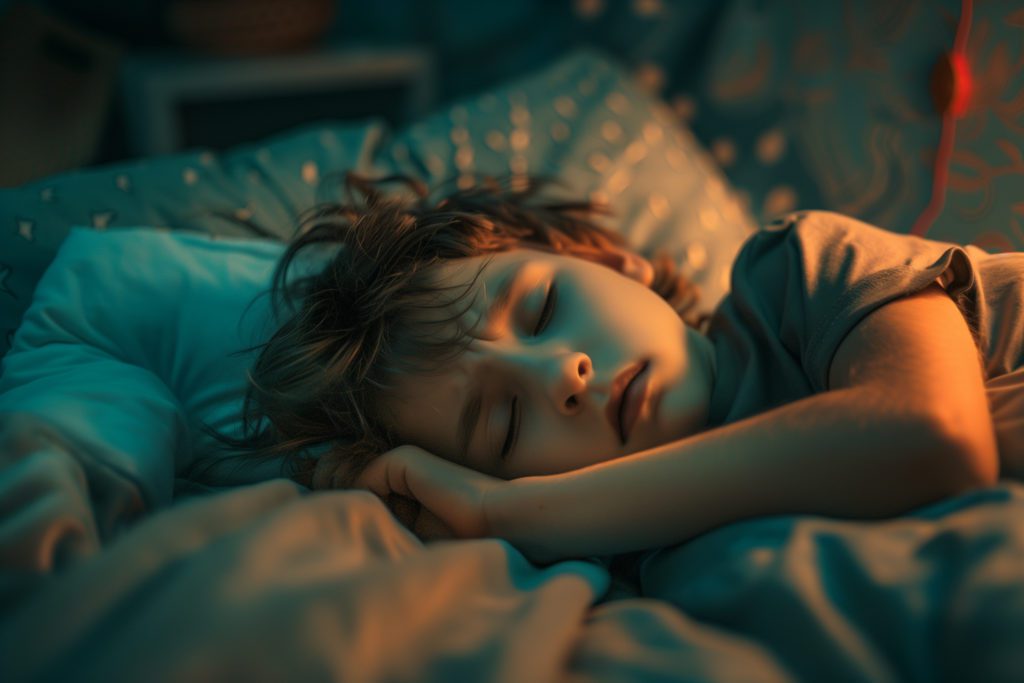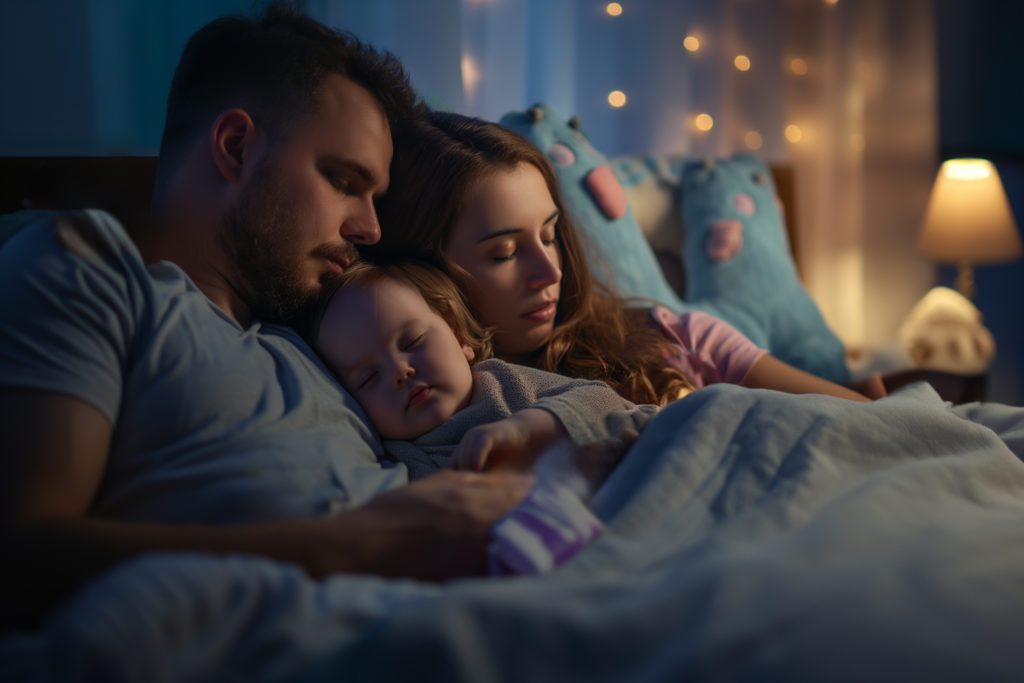
Relationship Between Sleep Disorders and ADHD in Children
Does your kid struggle with ADHD and getting enough sleep? Read more to discover the relationship between sleep disorders and ADHD in children.

If you have been around a child with ADHD, you might have noticed that not only do they struggle with ADHD, but they may struggle with sleep, too. Many people don’t think that ADHD and sleep are interrelated, but you might be shocked to find out that they are. In fact, there’s lots of research in the field that shows how sleep disorders and ADHD are closely related.
We’ll discuss how ADHD and sleep disorders can co-occur in kids, as well as how sleep disorders might contribute to ADHD symptoms. We’ll even discuss some of the neurobiological symptoms that might contribute to sleep disorders and ADHD so you can see why this is the case. Whether you know a child or you may have a child with ADHD, you’ll learn all you need to know to help them improve their health and understand their unique experiences.
Sleep Disorders and ADHD Can Co-Occur in Kids
One of the most unexpected but proven connections between sleep disorders and ADHD in kids is how these two types of disorders can co-occur. What this means is that if your kid has ADHD, they’re more likely to have a sleep disorder, too. One study actually proved that the higher the ADHD score for the child, the more likely that they were to have a sleep disorder (Source: PubMed).
This is essential information, especially if you have a kid who may have ADHD and already is having trouble sleeping. It also proves that ADHD is not an independent disorder but one that can co-exist with other conditions. Part of the reason that ADHD and sleep disorders can happen together in children is because of the fact that many kids experience unique neurobiological processes that lead them to experience motricity and somnolence.
Motricity simply refers to physical movement and coordination, and somnolence is defined as sleepiness, especially a solid urge to fall asleep. In fact, many kids with ADHD who complain about sleep challenges typically end up being evaluated for periodic limb movement disorder (PLMD)! As you can see, the relationship between sleep disorders and ADHD shows that these disorders can co-occur, but there are also further studies that show how sleep disorders might make your kid’s ADHD even worse.
Sleep Disorders May Contribute to ADHD Symptoms
With poor sleep often comes more problems, and that’s certainly the case for kids who have ADHD! If you have a kid with ADHD, you might have noticed that a bad night’s rest usually leads to more challenges in terms of their ability to focus, stay awake, and even stay on task. This is not accidental, as sleep disorders in kids can make their ADHD symptoms even worse and sometimes more challenging to manage.
Studies have shown that children who have sleep disorders, whether it be insomnia, restless leg syndrome (RLS), or another condition, struggle with more ADHD symptoms and even a lower quality of life (Source: Research in Developmental Disabilities). This is important to keep in mind, as we all know the importance of sleep for kids developing and growing into healthy adults. For those with ADHD, sleep is even more important!
Just imagine if a child with ADHD struggled with sleep. They would be more impulsive, hyperactive, and even potentially display behavioral problems. All of this, if you don’t consider sleep challenges, could be seen as them acting out, but in reality, it all comes down to their sleep disorder and how it is managed. You might be asking yourself why all of this is connected. That’s why we’re going to explore the neurobiological factors that contribute to sleep disorders and ADHD and how some of them might be connected.
Similar Neurobiological Factors Contribute to Sleep Disorders and ADHD
With ADHD and sleep disorders so closely related and impacting one another, it is not a coincidence that these two conditions share similarities in terms of their neurobiological factors. Let’s take a look at three common reasons why sleep disorders and ADHD often present symptoms together in young children:
- Dysregulation of Neurotransmitters: As you may already know, the neurotransmitters within the brain act differently for ADHD and sleep disorders. Certain anomalies or rare processes can actually be tied to the development of ADHD and sleep disorders, yet this is still being studied!
- Alterations in Brain Structure: Young kids with ADHD experience differences in their brain structure, specifically in regions like the prefrontal cortex. Specific changes to these regions also happen with sleep disorders, which might explain why alterations to the brain structure are common for both ADHDers and sleep disorder patients (Source: PubMed).
- Genetic Predisposition: As with other conditions, there may even be similar genetic predispositions that are connected to both sleep disorders and ADHD. If you or your partner have a sleep disorder or ADHD, you might have also passed this on to your child.
There are several similarities that exist between sleep disorders and ADHD, especially when looking at both the neurological and the biological components that could be impacting their situation. However, by understanding these three main factors, you will see just how your child could be struggling with both ADHD and sleep disorders, and you may even have some ideas on how to help them, too!
Take Steps to Support Your Child’s Health
Your child may have ADHD and be showing signs of a sleep disorder, but now that you know more about how they are connected, you can take steps to help your child. By recognizing what challenges they face, you can help your children prioritize their sleep, encourage healthier habits, and make their rest as exceptional as possible.
If you are curious about solutions to help your child with their condition, seeking help from a medical professional is always a good idea. Not only can they encourage you to take specific pathways to improve your child’s quality of life, but they can also give you further insight into the relationship between sleep disorders and ADHD.
FAQ
Can poor sleep make ADHD symptoms worse?
Absolutely! Lack of sleep can increase hyperactivity, impulsivity, and difficulty focusing, making ADHD symptoms more intense. It can also lead to more emotional outbursts and behavioral issues.
What are some natural ways to help my child with ADHD sleep better?
Try a consistent bedtime routine, a cool and dark sleep environment, relaxation techniques, and physical activity during the day to help them wind down at night.
How can I tell if my child’s sleep problems are linked to ADHD?
If your child struggles to fall asleep, wakes up frequently, snores loudly, or has restless sleep, these could be signs of an underlying sleep disorder related to ADHD.
Can melatonin help my child with ADHD sleep better?
Yes! Melatonin can help regulate the body’s internal clock and improve sleep onset, but it’s best to consult a doctor before starting any supplement.
Could my child’s ADHD medication be affecting their sleep?
Stimulant medications like Ritalin or Adderall can delay sleep onset. If your child has trouble sleeping, talk to their doctor about adjusting dosage or timing.
Can ADHD make my child wake up too early?
Yes! Some kids with ADHD experience early morning awakenings, where they wake up before they’re fully rested due to an overactive nervous system or inconsistent sleep cycles.

Written by
Marie Soukup
Marie Soukup is a seasoned copywriter, editor, and Integrative Nutrition Health Coach with a certificate from the Institute of Integrative Nutrition (IIN). With years of experience working with brands across diverse industries, Marie is passionate about holistic health and crafting compelling content.
Download Pillow
Get help
Press & News
Legal
Connect
X (Twitter)
Company
Copyright © Neybox Digital Ltd.



